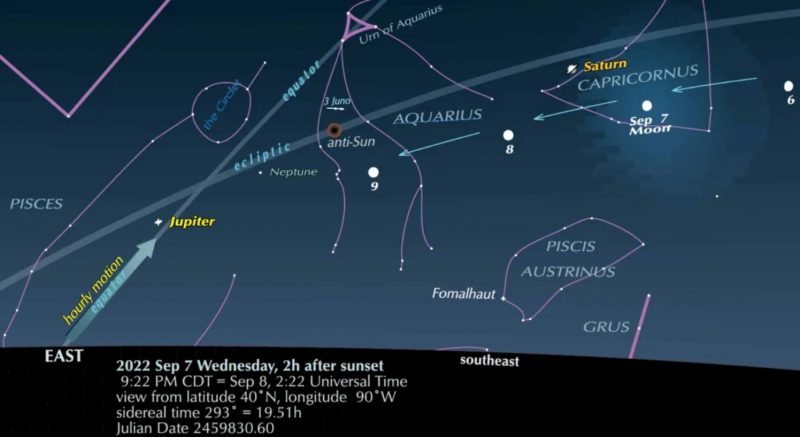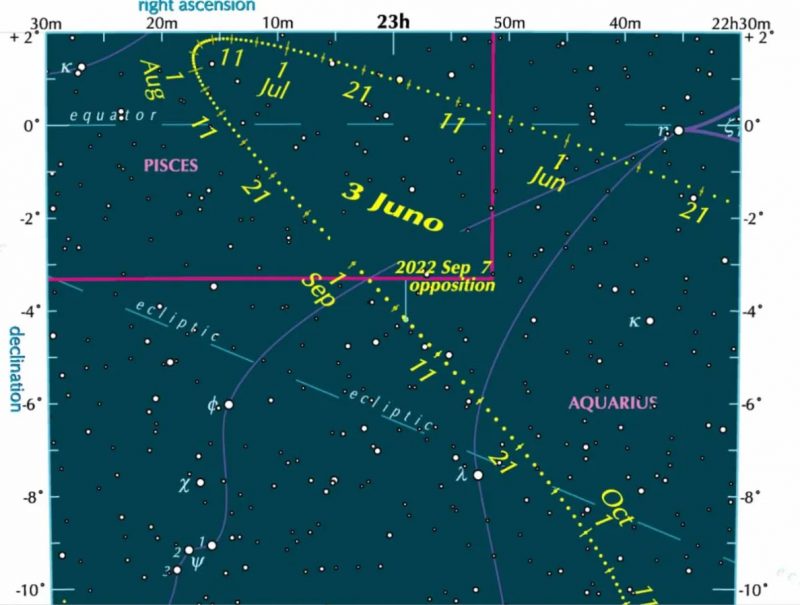
Asteroid Juno at opposition
Asteroid Juno (or 3 Juno), as with all asteroids and planets, appears best to observers around the time of opposition, when it’s opposite the sun in our sky. This is because objects usually shine brightest at this time and are closest to us in their orbits. They also rise around sunset and set around sunrise, allowing us an entire evening to choose when to gaze upon them. Asteroid Juno reached opposition on September 7, 2022, a few days before the full Harvest Moon.
But the moon moves much more quickly through the sky than Juno does. All you have to do is wait a few days for the moon to move away from Juno and you’ll have a better chance to spot the asteroid. Also, Juno lies within the stars of the constellation Aquarius. You can see how it moves from the star maps here.
At this opposition, Juno is 1.3 astronomical units (AU) from us and shines at magnitude 7.9. This is its closest and brightest since 2017, when it reached magnitude 7.4. The asteroid can be as dim as magnitude 10. But even though it’s relatively close and bright, it’s still dim enough that you will need binoculars and a star chart to spot it.
Juno’s official name is 3 Juno, because it was the third asteroid discovered by sky watchers. The first four asteroids discovered were Ceres, Pallas, Juno and Vesta. Vesta, the fourth asteroid discovered, is actually the brightest of them all. At Vesta’s opposition, it can reach as bright as magnitude 5.1, making it visible to observers without optical aid.
Asteroids in Aquarius
If you like hunting down asteroids, then you’ll want to know that Juno is not alone in Aquarius. Just below Juno (closer to the horizon) is asteroid 5 Astraea, shining at a much more challenging magnitude 10.9. Astraea is a target for telescope owners. But wait! If you want an easier asteroid to spot than Juno, remember how we said Vesta was the brightest? Well, it, too, is in Aquarius.
Asteroid 4 Vesta is currently in the south-southeast corner of Aquarius and shining at magnitude 6.2. By the end of September, Vesta will cross into Capricornus. In October it loops back across the border to Aquarius. Check Stellarium to create a finder map personalized to your location.


Bottom line: Asteroid Juno reached opposition on September 7, 2022. As the full moon wanes early next week, you can try to spot Juno in the darker sky.
Via Guy Ottewell’s Universal Workshop
The post Asteroid Juno at its best now, around opposition first appeared on EarthSky.
0 Commentaires